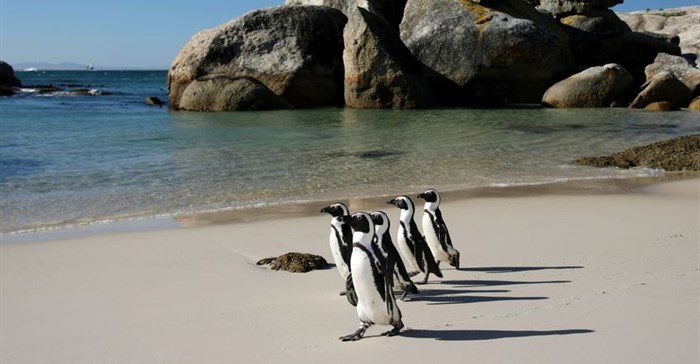
Top stories






More news




ESG & Sustainability
#Sona2026: President announces crisis committee to tackle SA's water challenges












The good news is that the prevention of fishing activity can lead to noticeable increases in chick survival. The bad news is that these measures may not, on their own, be sufficient to facilitate enough population recovery to remove the birds from the endangered species list.
The study was the latest to take advantage of an experiment revolving around two pairs of islands off South Africa's coast: St Croix and Bird Islands to the south, and Robben and Dassen Islands to the west. Starting in 2008, one island from each was made off-limits to fishing activity, while the other was open for business as usual. After three years the restrictions were reversed.
The closure was suggested because marine ecologists hoped it would minimise competition between penguins and the fishing industry within the core foraging range for the birds.
Even in the absence of commercial fishing activity, forage fish populations naturally undergo large fluctuations. The seabirds that rely on these species to feed themselves and their young typically respond to the occasional food shortages with short-term behavioural adjustments, such as skipping a breeding season.
But recent fishing activity, coupled with eastward shifts of the forage fish spawning grounds, have decimated fish stocks. This has affected African penguins to the point that they are no longer able to cope merely by changing how they act during the breeding season. Adult survival rates have plummeted, and the total worldwide population of the species has decreased by more than 90% since the 1930s.
The study used a dataset spanning 13 years - ten years prior to the closure and three years after. It was designed to investigate whether the fishery closures around Robben Island were improving penguin breeding success and might therefore be a way to help the species rebound.
Over the course of the study, a total of 1501 nests were monitored to calculate chick survivorship during each year of the study. These data were used in two ways. First, to investigate whether survivorship was related to the closure of the nearby fishery. Second, to create larger demographic models predicting how large the penguin population would be after ten years under the two different fisheries management schemes.
These patterns are likely to be influenced not only by the actions of fishermen, but also natural fluctuations in forage fish population numbers. The models, therefore, also contained data on the availability of anchovies and sardines in the waters near Robben Island. Because fish are able to come and go between protected and unprotected waters, the researchers also collected information on the extent to which these two forage fish species were captured by fishermen operating within 30 nautical miles around the island.
The results are striking. During years when the fishery was closed, chick survival was just under 66%. During years when the fishery was open, it dropped to only 47%. This 19% difference suggests that chicks are benefiting from the greater amount of food that their parents are able to locate and bring back to the nest.
If the closure were to be made permanent, with chick survival maintained at approximately 66% per year, we could expect to see approximately 222 breeding pairs on Robben Island in a decade. If the fishery remained open, with only 47% chick survival, we could expect only 175 pairs. In other words, closing the fisheries would likely result in an approximately 27% better population number ten years down the line.
The problem is that both of these values are still not enough. That's because even though fishery closure is an incredibly useful management tool, it only addresses one threat to the penguins and in only one of their habitats.
They face a number of other potential hazards, such as climate change, in the non-protected areas where they spend their time when they are not breeding.
While it is important to celebrate the effects of small-scale fishing closures, it is also necessary to think about it as only one tool in the conservation toolbox. Adopting different regimes could lead to more widespread reductions in fishing pressures in South African waters. It is important not to be reliant on fishing closures only but use a range of different techniques.![]()

The Conversation Africa is an independent source of news and views from the academic and research community. Its aim is to promote better understanding of current affairs and complex issues, and allow for a better quality of public discourse and conversation.
Go to: https://theconversation.com/africa